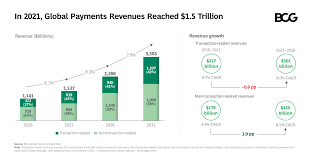Last year, the global economy faced electronic challenges and geopolitical tensions
Leading to a decline in trade flows. This was a significant shift from the growth observed in 2021 and 2022 following the pandemic. According to the latest Trade Register report by the International Chamber of Commerce (ICC) Banking Commission, trade and supply chain finance revenue is expected to decrease by 7.4% in 2023 compared to 2022.

Enno-Burghard Weitzel, the Senior Vice President for Strategy, Digitalization, and Business Development at Surecomp, a digital trade finance platform provider, highlights the importance of changing habits and mindsets despite the legal framework in place. Instantly transitioning to digitalization is not a realistic expectation. Letting go of paper and placing trust in digital solutions are essential steps. While paper is disliked for its disadvantages, it still offers certain advantages.
Just like the dollar, which has proven its ability to withstand crises ever since the 1944 Bretton Woods agreement, making it the preferred currency for international trade, Weitzel is of the opinion that paper will remain relevant for quite some time. “We still have a journey ahead of us to bring about that necessary change in mindset,” he argues.
Weitzel is confident that it will be corporations, not banks, who will drive innovation in order to achieve greater convenience and efficiency in the face of such a challenging task. Mencía Bobo, the global head of Trade and Working Capital Solutions at Santander Corporate & Investment Banking (Santander CIB), emphasises the importance for banks to not only keep up with the new digital environment but also anticipate the needs that arise from clients’ digitalization journey.
Additionally, banks should strive to maximise the potential of technological advancements to promote inclusivity and equity. Bobo highlights Santander CIB’s accomplishments in transforming the traditional paper-based documentary trade into a fully digitalized sector and supporting corporates in digitising their business-to-business sales. Furthermore, Santander CIB has formed key alliances with major players in the tech industry, enabling them to lead the trade transformation and facilitate the day-to-day operations of their clients.

The emergence of this advancement also creates opportunities for nonbanks to enter the trade finance sector. André Casterman, a respected trade-tech expert and the managing director of Casterman Advisory, emphasises the attractiveness of e-bills of exchange under the EDTA for asset managers. These digital bills align with the latest climate change practices, allowing transactions involving carbon offsetting to enhance environmental, social, and governance scores. Furthermore, the implementation of fraud protection measures will effectively address the concerns of credit insurers. For instance, credit insurers can validate e-bills of exchange on public blockchains.
Blockchain was once hailed as a revolutionary solution for advancing digital trade finance. However, despite significant investments from banks in trade-focused consortia since 2016, these consortia have failed to deliver on their initial promises due to the creation of isolated ecosystems. The closure of major bank-led distributed ledger platforms such as Contour, Marco Polo Network, we.trade, and TradeLens further highlights this issue.
Nevertheless, blockchain’s potential to enhance security, streamline operations, and enhance transparency means that it will still play a role in trade finance. However, it will now work in conjunction with other technologies. Casterman suggests that digital ledger technology could even open up new opportunities for retail investors, including in the realm of trade finance.
In conjunction with the ICC, Swift has just unveiled the inaugural application programming interface (API) standard for bank guarantees. The introduction of API-based open platforms will facilitate the connection of all trade parties, promising to enhance fintech engagement and foster greater innovation. While banks will continue to hold a prominent position in trade finance, a more open proposition is on the horizon.
The Approach: Unveiling the Rankings.
The Trade Finance Awards and the Supply Chain Finance Awards are carefully chosen by the editors at Global Finance, who collaborate with industry analysts, corporate executives, and technology experts. In their selection process, the editors take into consideration both entries and independent research, evaluating objective and subjective factors. While entering is not mandatory to win, providing additional information in an entry can enhance the chances of success. This year’s ratings, which encompass eight regions and approximately 100 countries, territories, and districts, are based on performance from the fourth quarter of 2022 through the third quarter of 2023.
Global Finance utilizes a proprietary algorithm that incorporates various criteria, including understanding customer needs, financial strength and safety, strategic relationships, capital investment, and innovation. These ratings are then transformed into a single numeric score, with a perfect score of 100. In cases where multiple institutions achieve the same score, preference is given to local providers over global ones and privately owned institutions over government-owned ones.
